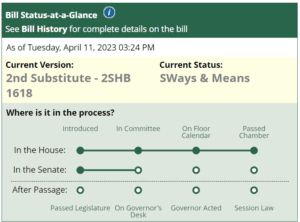The Statue of Limitation for Child Sex Abuse may be eliminated
A new Washington State House Bill may soon be passed that would eliminate the statute of limitation for child sex abuse lawsuits. House Bill 1618 is currently working its way through the Legislature. If passed, it would break down current statute of limitation barriers. This bill will have implications for child sex abuse victims who are seeking damages from past abuse. Currently in Washington State, the statute of limitations requires victims to file a lawsuit within three years of when the abuse occurred, three years after they turn 18, or three years from when they discover the full extent of the damage caused by the abuse.
Friedman Rubin Of Counsel attorneys Julie Kays and Cheryl Snow have spent a great deal of their careers advocating for victims of child sex abuse. Kays said, “If enacted into law, this legislation is a huge step forward to survivors of childhood sexual abuse. Over the decades, we have learned that it is common for survivors of childhood sexual abuse to delay reporting the abuse. This makes sense, because children can feel confusion, shame, and fail to appreciate that the abuse was wrong. Oftentimes the abuse is perpetrated by a loved one, or close family friend, and this makes it even more difficult for survivors to come forward. This Legislation takes what we have learned about childhood sexual abuse over the decades and preserves a victim’s right to pursue civil justice no matter how long it takes for a survivor to find their voice.” Snow adds, “There is no compelling reason to impose an arbitrary deadline on a childhood sexual abuse survivor’s quest for civil justice. We recognize that trauma from childhood sexual abuse may last a lifetime. We encourage survivors to consult with us about their case to assess whether the current or proposed law allows their case to go forward.”
In April 2023, the House passed HB 1618, and the legislation is currently being considered by the Senate. If the Senate passes the legislation it then goes to the Governor to sign the bill into law.

